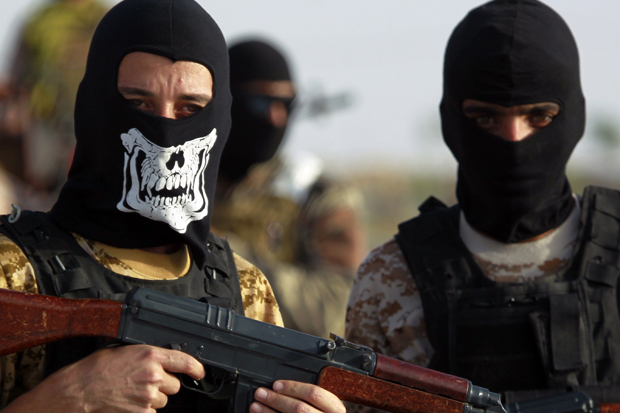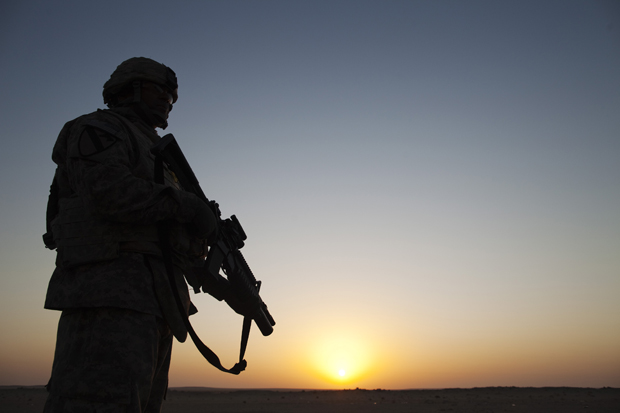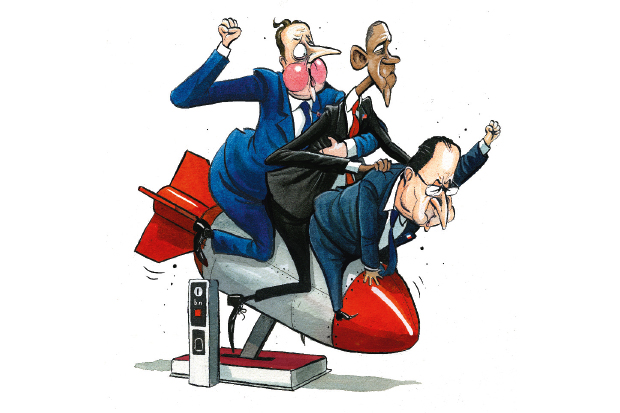Listen
War is a contest of wills. Although determination alone does not guarantee final victory, its absence makes defeat all but inevitable.
Way back in the 1770s, Britain lost most of its north American colonies because rebellious Americans cared more about gaining their independence than George III and his ministers cared about preserving their empire. Today, if Isis fighters care more about creating their caliphate than Iraqis do about preserving their country, then Iraq may be doomed.
At Saratoga in 1777, a scratch force of American Continentals and militiamen defeated 7,000 regulars under the command of Gentleman Johnny Burgoyne. It marked a major turning point in the American Revolutionary War. We may eventually see Isis’s recent seizure of Ramadi as an event of comparable significance.
As with the British at Saratoga, so with the Iraqi security forces in Ramadi: overall performance was abysmal. The Iraqi failure there elicited a harsh reaction from General Martin Dempsey, chairman of the US joint chiefs of staff. ‘The ISF was not driven out of Ramadi,’ he told reporters. ‘They drove out of Ramadi.’ Rather than fighting, they fled. The secretary of defence Ashton Carter echoed that judgment, saying, ‘We have an issue with the will of the Iraqis to fight.’
Who is this ‘we’? Carter appears to believe that the United States owns a large block of shares in Iraq Inc., whose directors are therefore obliged to take into account what ‘we’ think. To be fair, he is merely reciting what US policymakers take for granted when contemplating the world at large. America’s entire miserable Mesopotamian misadventure has its basis in the conviction that ‘we’ possess the capacity to shape Iraq’s future, guiding its people, once liberated from the grip of tyrannical rule, toward some happy future.
The abject performance of Iraq’s army has rendered a definitive verdict on such expectations. The United States has spent over a decade trying to build a nationally representative Iraqi force able to maintain internal order and defend against external threats. That effort has failed, calling into question whether Iraq can survive as a coherent nation-state.
Those implicated in the failure on the US side — two presidential administrations along with high-ranking military officers who offered policy advice or exercised field command — have a shared interest in concealing the extent of the debacle. So the reflex response from official Washington is to try a bit harder. Hence the narrow range of what passes for a policy debate. On one side are those who argue for more air strikes to keep Isis at bay, or more US trainers and advisers to help Iraq’s army get its act together. On the other are those who favour recommitting US ground troops — the irrepressible Senator Lindsey Graham feels certain that 10,000 will suffice.
What is absent and much needed is an effort to distinguish between the fate of Iraq and the danger of Isis. Neither the United States nor the West generally is in a position to determine the former. Both the US and what’s left of the West have a strong interest in addressing the latter.
A sound policy response begins by realistically gauging that danger. Isis does not pose an existential threat to the West. In no way does it compare with 20th-century totalitarian threats such as Nazism and communism. Whatever its appeal to an alienated fringe, radical Islamism cannot compete effectively with the allure of modernity, however tawdry. Violent jihad is a niche product. Isis is no more likely to absorb the nations of the Persian Gulf into its caliphate than George W. Bush’s Freedom Agenda was to turn them into liberal democracies.
The actual threat posed by Isis is threefold. First is the cultural threat: a demented assault on antiquities. However much western leaders may condemn such behaviour, none has volunteered to deploy soldiers to protect museums or ruins. Second is the humanitarian threat, which finds those captured by Isis viciously murdered or otherwise forced to submit to draconian rule. Western governments may care slightly more about young girls subjected to coerced marriages than about marble statues demolished by sledgehammers, but western publics show little inclination to expend large sums or to put soldiers at risk to end such practices. As with the assault on culture, the assault on human rights elicits handwringing but no action.
The third threat makes for less dramatic TV than the first two — but it is the one that matters. The West has a profound interest in fostering a neo-Westphalian international order: a world of nation-states willing to share the planet while abiding by certain basic norms. The West itself, and Europe above all, embodies such an order, which offers not utopia, but at least some semblance of stability and decency. That such an order, governed with sufficient wisdom, can advance the wellbeing of all humankind is a proposition that western statesman should never cease to promote.
Of course, the obstacles to creating such an order are legion. Pre-eminent among them, at least at present, is the existence of groups bent on destroying the nation-state system. Isis is one. Presently targeting Iraq and Syria, it entertains ambitions that go much further afield, as illustrated by this week’s attack on a mosque in Saudi Arabia.
The necessary western response to this threat — one unlikely to materialise unless Washington takes the lead — is to forge a coalition of nations committed to preserving the system. Ideally, it would allocate a central role to Iraq as the state most directly imperilled by Isis. But Iraq has demonstrated its unsuitability for the task.
Who then? Which nation is in a position to fight Isis and has the will to do so — indeed, is already committed to that fight? The question answers itself: Iran.
Isis seeks to destroy Iraq, a prospect that the West should view as catastrophic. Iran seeks to incorporate Iraq into its sphere of influence, an outcome that the West may well consider unfortunate. But in the real world, where statesmen must choose between actually existing alternatives, the latter outcome is preferable to the former.
Rather than ignoring or opposing Iranian efforts to defeat Isis, the United States should provide tacit assistance. What do they need to prevail? That’s what ‘we’ should offer. Better that than to send 10,000 troops on yet another fool’s errand.
Got something to add? Join the discussion and comment below.
Get 10 issues for just $10
Subscribe to The Spectator Australia today for the next 10 magazine issues, plus full online access, for just $10.
Andrew J. Bacevich is writing a military history of America’s war for the greater Middle East.
You might disagree with half of it, but you’ll enjoy reading all of it. Try your first month for free, then just $2 a week for the remainder of your first year.















Comments
Don't miss out
Join the conversation with other Spectator Australia readers. Subscribe to leave a comment.
SUBSCRIBEAlready a subscriber? Log in